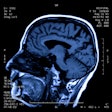
A simple blood test to detect malignant brain tumors that can be hard to locate could spare many cancer patients risky and invasive surgery, say scientists.
The U.S. Food and Drug Administration (FDA) recently granted breakthrough device designation for the liquid biopsy test, TriNetra-Glio, developed by Datar Cancer Genetics. The test is indicated for patients with brain lesions known as intracranial space occupying lesions (ICSOLs), where a brain biopsy is nonviable, as tumors are inoperable or inaccessible.
In clinical studies, the test was found to detect, with high accuracy, glial tumors including glioblastoma (GBM), the most commonly-diagnosed type of high-grade brain tumor in adults.
Researchers who have published their clinical validation findings in the International Journal of Cancer say the technology could help speed up diagnosis and access to treatment.
“A noninvasive, inexpensive method for the early detection of brain tumors is critical for improvements in patient care,” said Dr. Nelofer Syed, scientific lead at the Brain Tumor Research Charity’s Centre of Excellence run by Imperial College London, which partnered with Imperial College Healthcare NHS Trust and Datar Genetics for the study.
“There is still some way to go, but this solution could help people where a brain biopsy or surgical resection of the tumor is not possible due to the location of the tumor or other constraints. We believe this could be a world-first as there are currently no noninvasive or non-radiological tests for this type of tumor,” Syed said.
Two-thirds of all brain tumors are benign, but confirmation requires invasive biopsy, to remove part of the tumor for histopathological assessment, a procedure with substantial risks of complications, pain, and discomfort for patients, particularly those with underlying health conditions. It has been reported that over 40% of all high-grade brain tumors cannot be biopsied due to inaccessibility of the tumor.
The TriNetra-Glio blood test works by detecting the presence of glial malignancies (GLI-M) from the cancerous cells that have broken away from the tumor and are circulating in the blood. These are rare and can be difficult to detect.
The ability of the test to detect and differentiate GLI-M from nonmalignant brain tumors (NBT), brain metastases from primary epithelial malignancies (EPI-M), and healthy individual donors (HD) was evaluated in four clinical cohorts. Across these clinical studies, the test showed 99.35% sensitivity (95% confidence interval [CI]: 96.44%–99.98%) and 100% specificity (95% CI: 99.37%–100%).
The results “support its clinical utility for diagnostic triaging of individuals presenting with intracranial space-occupying lesions (ICSOLs),” say the authors.
They say the simplicity of the test, which requires only a 15-mL blood sample, “makes it amenable to integration within the standard of care diagnostic pathways in most healthcare systems.”
"This test is not just an indicator of disease, it is a truly diagnostic liquid biopsy,” said Dr. Kevin O'Neill, consultant neurosurgeon and principal investigator for the Brain Tumor Research Centre of Excellence at Imperial College London.
“It detects intact circulating tumor cells from the blood, which can be analyzed to the same cellular detail as an actual tissue sample. The intended indication to provide a liquid biopsy diagnosis from a simple blood test where tumors are deemed inoperable or inaccessible will truly address an unmet need,” he said.
















